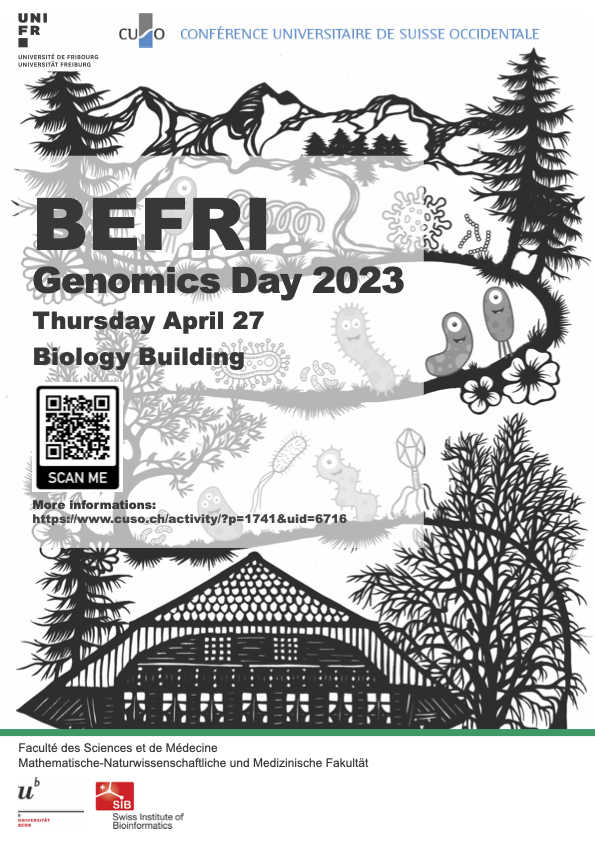Laurent Falquet
PhD, Group Leader, Platform Manager
PER 01 - 0.366b
+41 26 300 8991
E-mail
At the Bioinformatics Unraveling Group of the University of Fribourg BUGFRI we support life science researchers by providing expertise in data analysis of Next Generation Sequencing (NGS) experiments, or any large-scale biological experiment requiring bioinformatics resources. We focus on genome assembly, annotation and comparison, as well as, on mutant and structure variant identification.
Our projects mainly involve microbial genomics, metagenomics and epigenomics research.
We are interested by metagenomics data analysis looking to understand the role of bacteria and fungi in the process of rice straw composting.
In particular we focus on whole genome shotgun sequencing and metagenome assembly into MAGs with PacBio HiFi reads. We developed several tools like MAGflow/BIgMAG and 2Pipe.
We were part of a Sinergia project dedicated to the identification and analysis of toxin-antitoxin systems (TAS) in relationship to the antibiotic resistance phenotypes. The subject has been recognized of critical importance by the World Health Organization (WHO) in its global action plan to combat antimicrobial resistance. We use Next Generation Sequencing (NGS) experiments (e.g. Tn-seq, Mut-seq, Shotgun-seq and nEMOTE-seq) to identify toxin-antitoxin genes and their targets. We also perform data mining on the ENSEMBL Bacteria database to extract candidate TAS and build a database called TASmania.
As a secondary topic, we are interested in extracting DNA methylation information from PacBio sequencing data to compare DNA methylations in prokaryotes. We developed a tool called PACMAN to visualize graphically methylated motifs in bacterial genomes. PACMAN
Workshop: Introduction to Metagenomics Data Analysis of Microbial Communities

PhD, Group Leader, Platform Manager
PER 01 - 0.366b
+41 26 300 8991
E-mail
Group leader of the
Swiss Institute of Bioinformatics